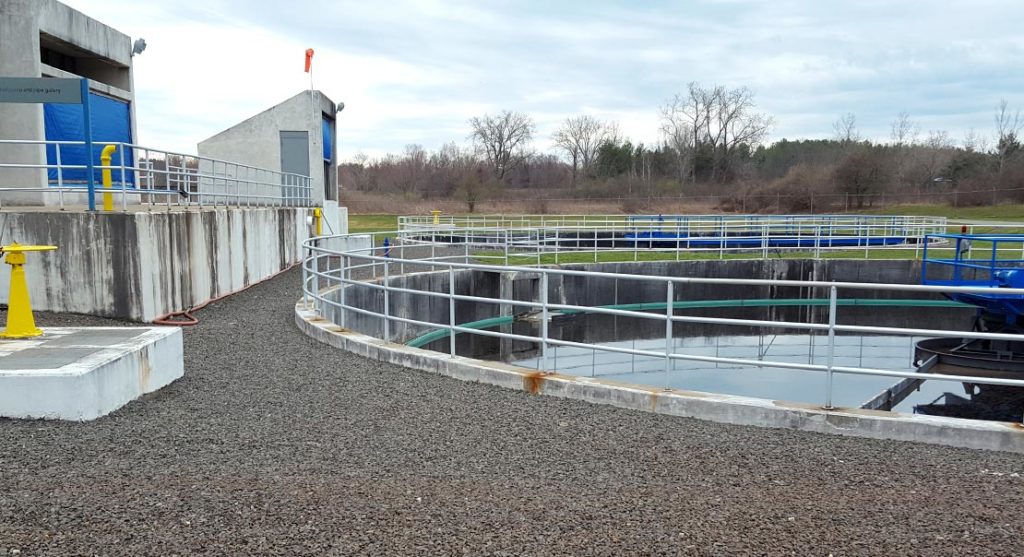Supporting clean water and public health through wastewater treatment.
Wastewater systems are essential infrastructure, protecting public health and the local environment. Wastewater treatment plants collect and treat wastewater, sewage and stormwater before releasing it back to the environment. Meanwhile, septic systems treat sewage from homes and businesses that are not connected to a centralized wastewater treatment plant.

Wastewater facilities are subject to regulation in the form of discharge permits required by the Clean Water Act. Stormwater, especially associated with extreme weather events, can overwhelm wastewater systems and lead to discharges of untreated wastewater directly into water bodies. Other challenges for wastewater management include residuals (also called biosolids) and emerging contaminants such as PFAS.
NEIWPCC’s Role
Supporting effective and innovative wastewater treatment and the professional development of staff is a primary focus for NEIWPCC. For many years, NEIWPCC was instrumental in the planning and construction of wastewater treatment facilities, including leading the effort to establish facility design standards. NEIWPCC responds to state requests to develop relevant guides and manuals.
Wastewater Training Program
For more than 50 years, NEIWPCC has worked closely with state agencies and the EPA to provide training and certification to operators. Our Wastewater Training Program offers a wide variety of courses for water and wastewater operators, attracting more than 3,000 attendees each year.
NEIWPCC also administers the wastewater training and management programs on behalf of the states of Maine (through JETCC) and Massachusetts. Additionally, NEIWPCC coordinates the Massachusetts Title 5 septic system certification program.
Workforce Development
With many plant managers at or near retirement age, it is essential to prepare talented operators to help combat the industry’s aging workforce. NEIWPCC is actively involved in bringing new talent into the field by working with career centers and through our longstanding participation in the EPA’s Youth and the Environment Program. NEIWPCC also published a guide for estimating staffing at wastewater treatment plants. Learn about what the wastewater industry has to offer.
Collaboration Through Workgroups
Wastewater Division staff meet regularly with representatives from our member states, the EPA, and other organizations to exchange information and ideas on current issues, initiatives, and technical projects. We have workgroups devoted to wastewater training and certification, onsite wastewater, discharge permits, emerging contaminants, and residuals.
